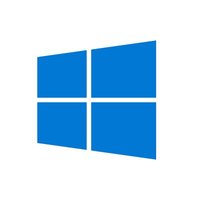Need advice about which tool to choose?Ask the StackShare community!
Ubuntu vs elementary OS: What are the differences?
1. User Interface: Ubuntu uses the GNOME desktop environment with a modified version called GNOME Shell. In contrast, elementary OS comes with its Pantheon desktop environment, designed to provide a sleek, elegant, and efficient user experience with a focus on simplicity and minimalism.
Software Center: Ubuntu utilizes the Ubuntu Software Center for users to manage and install applications, offering a wide range of software choices. On the other hand, elementary OS features the AppCenter, which emphasizes curated applications tailored for a consistent user experience and a more refined selection of software.
Customization: Ubuntu provides a high level of customization options, allowing users to personalize their desktop environment extensively. In contrast, elementary OS values simplicity and coherence, limiting customization options to maintain a consistent look and feel across the system.
Parent Distribution: Ubuntu is based on Debian and has a large community backing it, offering extensive support and resources. In comparison, elementary OS is based on Ubuntu and has a smaller but dedicated community, focusing on delivering a polished and user-friendly experience.
Pre-installed Applications: Ubuntu comes with a wide range of pre-installed applications, catering to different user needs. As for elementary OS, it offers a selection of essential applications to maintain a clean and uncluttered system, encouraging users to explore and add applications as needed.
System Updates: Ubuntu provides regular updates for system maintenance and security patches, ensuring the stability and security of the system. Meanwhile, elementary OS follows a strict release schedule and focuses on delivering major updates through new releases rather than frequent updates, prioritizing system stability and consistency.
In Summary, Ubuntu and elementary OS differ in user interface design, software management, customization options, community support, pre-installed applications, and update strategies.
Ubuntu is much more faster over Windows and helps to get software and other utilities easier and within a short span of time compared to Windows.
Ubuntu helps to get robustness and resiliency over Windows. Ubuntu runs faster than Windows on every computer that I have ever tested. LibreOffice (Ubuntu's default office suite) runs much faster than Microsoft Office on every computer that I have ever tested.
Global familiarity, free, widely used, and as a debian distro feels more comfortable when rapidly switching between local macOS and remote command lines.
CentOS does boast quite a few security/stability improvements, however as a RHEL-based distro, differs quite significantly in the command line and suffers from slightly less frequent package updates. (Could be a good or bad thing depending on your use-case and if it is public facing)
At the moment of the decision, my desktop was the primary place I did work. Due to this, I can't have it blow up on me while I work. While Arch is interesting and powerful, Ubuntu offers (at least for me) a lot more stability and lets me focus on other things than maintaining my own OS installation.
Pros of elementary OS
- Free to use5
- MacOs like feel4
- Fast4
- Stable4
- Elegant3
- Excellent replacement for Windows2
- Good for beginners2
- Very easy to use2
Pros of Ubuntu
- Free to use230
- Easy setup for testing discord bot96
- Gateway Linux Distro57
- Simple interface54
- Don't need driver installation in most cases9
- Open Source6
- Many active communities6
- Software Availability3
- Easy to custom3
- Many flavors/distros based on ubuntu2
- Lightweight container base OS1
- Great OotB Linux Shell Experience1
Sign up to add or upvote prosMake informed product decisions
Cons of elementary OS
- Less customization1
Cons of Ubuntu
- Demanding system requirements5
- Adds overhead and unnecessary complexity over Debian4
- Snapd installed by default2
- Systemd1


































